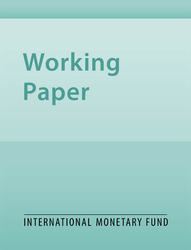
Did Korean Monetary Policy Help Soften the Impact of the Global Financial Crisis of 200809?
Working Paper No. 12/5
Korea was one of the Asian economies hardest hit by the global financial crisis. Anticipating the downturn that would follow the episode of extreme financial stress, the Bank of Korea (BOK) let the exchange rate depreciate as capital flowed out, and preemptively cut the policy rate by 325 basis points. But did it work? This paper seeks a quantitative answer to the following question: Were it not for an inflation targeting framework underpinned by a flexible exchange rate regime, how much deeper would the recession have been? Taking the most intense year of the crisis as our baseline (2008:Q42009:Q3), counterfactual simulations indicate that rather the actual outcome of a -2.1 percent contraction, the outturn would have been -2.9 percent if the BOK had not implemented countercyclical and discretionary interest rate cuts. Furthermore, had a fixed exchange rate regime been in place, simulations indicate that output would have contracted by -7.5 percent over the same four-quarter period. In other words, exchange rate flexibility and the interest rate cuts implemented by the BOK helped substantially soften the impact of the global financial crisis on the Korean economy. These counterfactual experiments are based on an estimated structural model, which, along with standard nominal and real rigidities, includes a financial accelerator mechanism in an open-economy framework.
Publication date: January 2012
ISBN: 9781463930547
$18.00
Add to Cart by clicking price of the language and format you'd like to purchase
Available Languages and Formats
| English |
Prices in red indicate formats that are not yet available but are forthcoming.
Topics covered in this book
This title contains information about the following subjects.
Click on a subject if you would like to see other titles with the same subjects.
Economics- Macroeconomics , Economics / General , International - Economics , Financial Accelerator , Bayesian Estimation , Dsge Model , Financial Crises , Sudden Stops , Korea , Emerging Economies , Emerging Markets , Economic Growth , Economic Indicators , Economic Models , Economic Recession , Exchange Rate Regimes , Flexible Exchange Rate Policy , Global
Summary
Copyright © 2010 - 2026
Powered by:
AIDC



